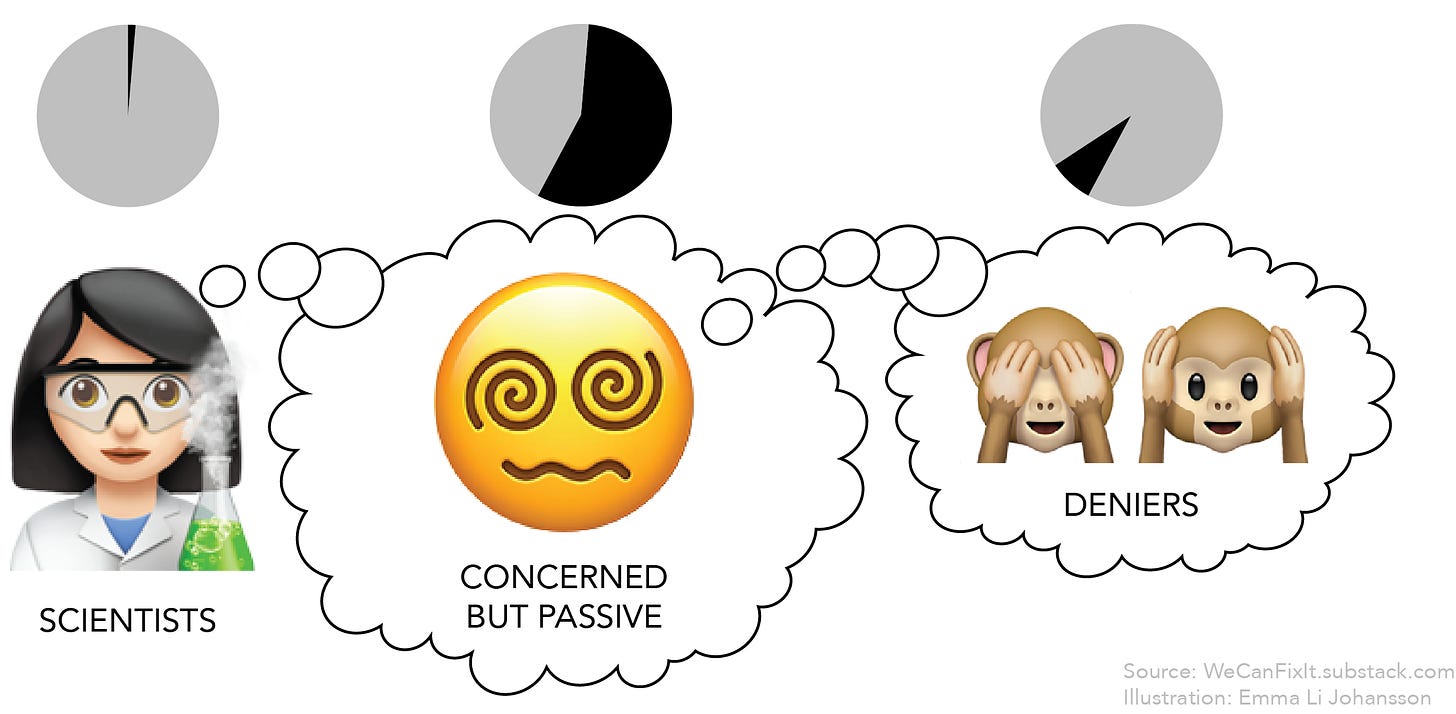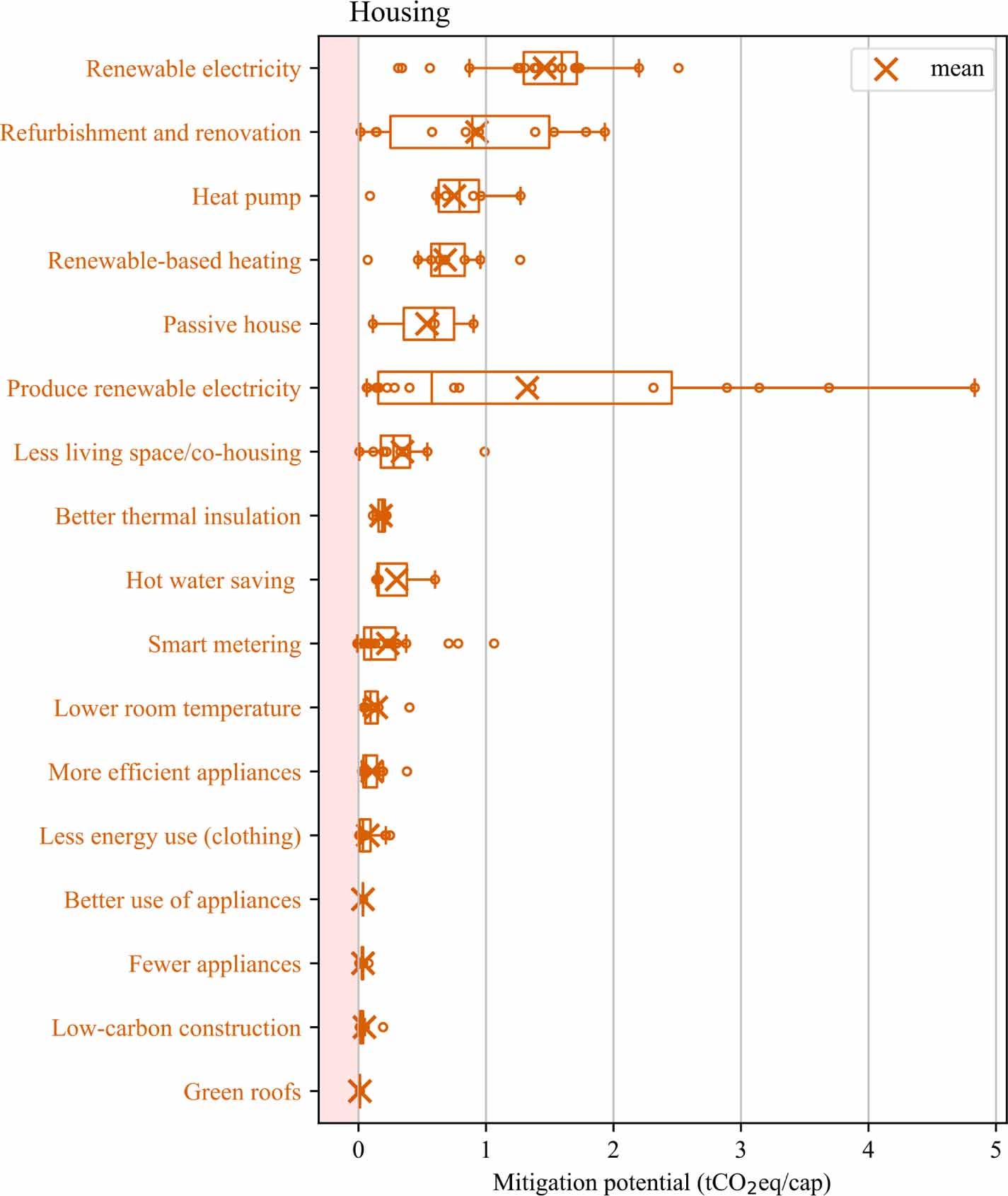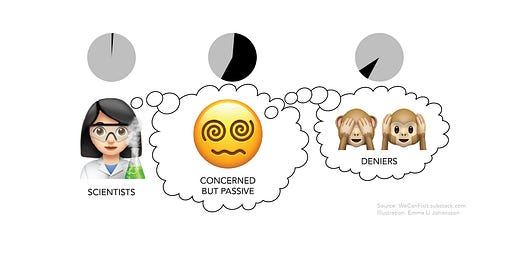Tough love from a climate scientist
Most Swedish political parties not listening to science; tough love from a climate scientist; how to save energy at home
Hi friends! It’s time to admit that, once again, many of my tomatoes are just not going to ripen here in Sweden. And to get on with the climate facts, feelings, and action!
Facts: Swedish political parties not listening to science
I led a team of nine researchers in assessing the climate policies of the Swedish political parties ahead of our national elections held September 11, 2022.
We found that most parties are out of line with science in most areas we assessed. With the exception of the Green and Left Parties, most parties rely on tech solutions for more than they can deliver, avoiding necessary behaviour changes and failing to address root causes of the climate crisis.
If the world follows the path most of Sweden’s parties aim for (especially those coming into power now), we are headed for climate catastrophe. Womp-womp!
Overall, we grouped the political parties’ climate goals and plans into 3 categories:
Transformative: Greens, Left Party
Slow and Insufficient: Liberals, Centre, Social Democrats
Regressive: Christian Democrats, Sweden Democrats

Our assessment was based on responses to a survey sent to all 8 political parties. (The traditional conservative party, confusingly called the Moderates, did not answer.) The authors are all part of the nonprofit climate experts’ network Researchers’ Desk.
We assessed the parties in seven areas:

And analysed their main arguments, structure, and strategies:

This project started out of my frustration at the lack of scientific assessment of how political parties’ climate politics stack up with what research shows is needed for a fast and fair transition to a fossil-free world. While there are lots of analyses of the climate policies needed, voters generally cannot vote directly for a fossil fuel non-proliferation treaty, or for a legit climate pledge. Those are policies that only leaders in government have the power to enact.
What voters can do is vote for a specific party or candidate to represent them, and then hold those politicians accountable to deliver bold climate policies. Voting is the highest-impact climate action we can take as citizens.
We need evidence-based assessments both to guide voters, and to push politicians to improve their policies. To my knowledge, our Researchers’ Desk report is the first formal analysis by scientists of Swedish political parties’ climate politics.
We need more of these analyses around the world. I’ve heard from researchers who are interested in conducting similar assessments for their own national, regional, or local elections. Get in touch if you want advice!
I’m incredibly grateful to the amazing colleagues and friends who worked on this report: Maria Wolrath Söderberg, Jessika Luth Richter, Svetlana Gross, Erik Pihl, Åsa Kasimir, Wim Carton, Thomas Hahn, and Alasdair Skelton; and to the many people who helped us make this analysis happen and share our findings.
For more nerdy details on how we did the analysis, check out my Twitter thread. For news coverage (in Swedish), see the feature article in Dagens Nyheter and editorials from 9 Sept and 17 Sept; Sydsvenskan; Expressen; Omni.
Feelings: Tough love from a climate scientist
I’m struggling with an uncomfortable climate feeling right now that I’m not sure what to do with. So I’ll put down a few words about it here, and see if anyone can relate!
Recently I’ve gotten a lot of questions about what to do about climate deniers. These questions inevitably come from people who are concerned or alarmed about climate change, who tell me they’re losing sleep thinking about their children’s future, and the people in Pakistan and Florida fleeing flooded homes, and dying forests and rivers.
The thing is, the other week, I hit a bit of a wall with fielding these questions.
Inevitably, the people asking me what to say to climate deniers are… to be blunt… really not taking much high-impact climate action themselves. They’re directing their energy fretting over what others are doing or not doing.
What I lose sleep over is not the tiny fraction (less than 10%) who are climate deniers. What keeps me up at night is the large majority of people who are climate concerned, but passive.
Data from the US show that 64% “rarely or never” discuss climate. In the past year, only 13% have donated money and 6% donated time to an organisation working on climate. Only 8% wrote or called a public official about global warming.
You are the people I’m trying to reach, because you are the ones who quite literally hold the fate of the world in your hands. And so far, too many of your hands are, well, not helping to “push the boulder of climate action,” as Katharine Hayhoe says.

Many hands make light work. Those of us pushing the boulder really need YOUR hands on it.
Everything is a lot right now. All of us need rest, breaks, play, nourishment. We need to take care of our own health and wellbeing, and to meet caring responsibilities to others. I’m not advocating running around like a headless chicken, or beating yourself up because you ate a burger.
But! Can you look in the mirror today and honestly say that you’re doing what is in your power to prevent climate breakdown?
You wail, “But what can I do?” You can flex your Top 5 Climate Superpowers— reducing your emissions as a consumer, and working for powerful change as a professional, with your investments of time and money, as a role model inspiring others, and as a citizen.
Where will you find the time? Well, the average American adult spends 11 hours a day consuming content: “listening to, watching, reading, or generally interacting with media.” Is all of this time actually informing, inspiring, or nourishing you?
Isn’t there 20 minutes a day you could spend on meaningful climate action? Getting the climate-concerned but passive majority to take 2 hours a week (6 days/week x 20 minutes; you get one day off to rest) of high-impact climate action would be utterly transformative.
What can you do with 20 minutes today? Well, did you ever actually call your elected official and demand climate action? (Here’s how.) Have you talked with at least one colleague at work about how your company can reduce flying? Are you a monthly donor to a climate charity like 350.org?
Go ahead and do your 20 climate minutes now, then come back. I’ll be here. <3
Action: How to save energy at home
Okay, so in Under the Sky We Make, I wrote that individual actions to save energy at home were not always the most effective way to go. And now I’m going to tell you how to save home energy. What gives?
Well, if you fly or drive, you will reduce your carbon footprint more by cutting those trips than by reducing your home energy use; and previous research has shown that what’s worked best to clean up and reduce energy use is regulations and standards.
And! The world needs to stop burning fossil fuels like our lives depend on it, because they do; avoiding unnecessary consumption and increasing efficiency are good; and here in Europe, we need to save energy especially this winter.
But most people have the wrong idea about saving energy at home. The most common answer for how to save energy is to turn off the lights, but that reduces way less emissions than what I’m about to recommend. So here’s what works, from biggest to smallest climate savings:

If you can, get rooftop solar on your house to produce your own renewable electricity. (My housing association just applied for solar permits, and was denied. There is a public hearing full of righteous rage in my future!)
If you can’t go solar, or while you’re working on it, purchase renewable electricity from the provider in your area. (There is some risk that the provider you choose won’t replace dirty energy with clean; but getting renewable electricity is cost-competitive, with big potential upsides, and I’ve decided to do it anyway.)
Next, go for “refurbishment and renovation” (like improving insulation and installing efficient windows), to reduce the energy you need to use to make your home comfortable.
Replace your fossil-based home heating/cooling with an electric heat pump (basically, reversible air conditioners that can both heat and cool your home by moving air around). Gotta love Rewiring America, who sent Mr. Heat Pump to Washington to get people jazzed on this magic, under-appreciated box.
A lot of home energy goes to heat or cool things (including the air temperature in your house, water for washing yourself and your clothes and dishes, and your washer and dryer). This makes big appliances like water heaters the exception to the usual low-carbon rule of thumb to use what you already have, because newer, highly efficient models save a lot of emissions and are worth the upgrade if you can afford it. Heat rooms to max 19°C (66°F), and hot water to 48°C (120°F). Wash clothing in the coldest recommended temp, and hang to dry.
Parting Tidbits
I had the pleasure of talking with Rose Aguilar about “How to Be Human in a Warming World” on live radio for Your Call, KALW. She was the best-prepared interviewer I’ve ever had!
I talked to Allyson Chiu at The Washington Post about building the climate cathedral:
“History doesn’t really know their names, and many of them probably didn’t live to see it completed, and they didn’t know where all the pieces were coming from or where everything was going. But they laid their stone or they made their window or they put the wood together. They did the one little piece that they were capable of doing and it did add up to this amazing thing that has really stood the test of time.”
Reading recommendation: How to Do Nothing: Resisting the Attention Economy, by Jenny Odell, convinced me that “thought and dialogue rely on physical time and space,” and helped me work on making better use of mine.
xo,
Kim
P.S. If you’re new, please subscribe to get these posts once a month in your inbox, and join our conversations:




Really good point about the climate deniers vs those who are concerned but not acting.
I've been underestimating the extent to which my U.S. passive worrier peers are in the majority and have untapped potential for addressing climate concerns. I've recently taken more action, but appreciate nudges and encouragement to take additional steps. Reminds me of this quote attributed to Lily Tomlin: “I always wondered why somebody doesn’t do something about that. Then I realized I was somebody.”